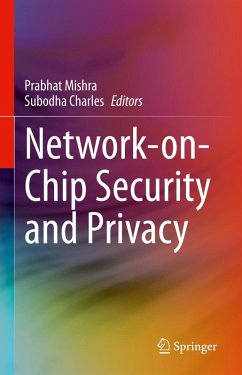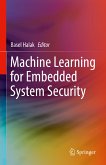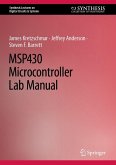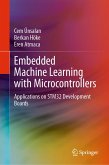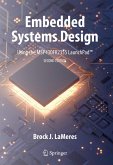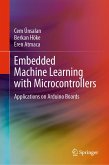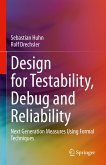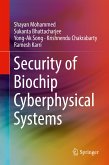This book provides comprehensive coverage of Network-on-Chip (NoC) security vulnerabilities and state-of-the-art countermeasures, with contributions from System-on-Chip (SoC) designers, academic researchers and hardware security experts. Readers will gain a clear understanding of the existing security solutions for on-chip communication architectures and how they can be utilized effectively to design secure and trustworthy systems.
- Provides a comprehensive overview of NoC security vulnerabilities for diverse on-chip communication architectures, including bus, mesh, ring, star, and hybrid network topologies;
- Describes state-of-the-art security solutions for defending against a wide spectrum of attacks, including malicious implants (e.g., hardware Trojans), eavesdropping, information leakage, spoofing, denial-of-service, and erroneous execution;
- Covers a wide variety of NoC attacks and effective countermeasures for diverse communication technologies, including electrical, optical (photonic) and wireless NoCs;
- Presents lightweight static (design-for-trust), as well as dynamic (runtime) security solutions;
- Enables security validation using an effective combination of formal methods, assertion-based validation, side-channel analysis, and machine learning;
- Discusses trade-offs between on-chip communication security and energy-efficient implementation in resource constrained embedded systems and IoT devices.
Dieser Download kann aus rechtlichen Gründen nur mit Rechnungsadresse in A, B, BG, CY, CZ, D, DK, EW, E, FIN, F, GR, HR, H, IRL, I, LT, L, LR, M, NL, PL, P, R, S, SLO, SK ausgeliefert werden.
Es gelten unsere Allgemeinen Geschäftsbedingungen: www.buecher.de/agb
Impressum
www.buecher.de ist ein Internetauftritt der buecher.de internetstores GmbH
Geschäftsführung: Monica Sawhney | Roland Kölbl | Günter Hilger
Sitz der Gesellschaft: Batheyer Straße 115 - 117, 58099 Hagen
Postanschrift: Bürgermeister-Wegele-Str. 12, 86167 Augsburg
Amtsgericht Hagen HRB 13257
Steuernummer: 321/5800/1497
USt-IdNr: DE450055826
Bitte wählen Sie Ihr Anliegen aus.
Rechnungen
Retourenschein anfordern
Bestellstatus
Storno

